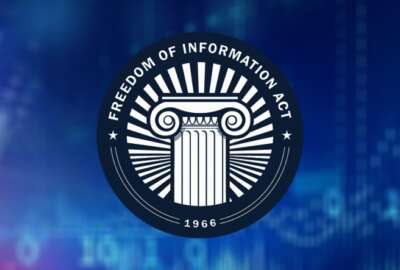

The rush to mandatory telework in the early months of the coronavirus pandemic laid bare the state of agencies’ investment — or lack thereof — in IT...
The rush to mandatory telework in the early months of the coronavirus pandemic laid bare the state of agencies’ investment — or lack thereof — in IT infrastructure.
That same lesson holds true for agency offices tasked with fulfilling Freedom of Information Act requests at a time when employees, in some cases, have limited access to records while teleworking, especially if a FOIA request queries sensitive or classified records.
In some cases, agencies have enabled remote access for some FOIA processing tools, but not enough that would allow this work to be completed by employees working from home.
Eric Stein, the State Department’s chief FOIA officer and co-chair of the Chief FOIA Officer Council’s technology committee, said some agencies, for example, have FOIA case processing software that employees can remotely access, but remote access to the search tools need to process requests.
“Agencies are working really hard to look at these issues and find out the best way to do so in a way that [ensures] their safety, the safety of their families and everyone around them — and who’s coming into the office and how. I know it may sound like a simple issue but it’s a real challenge right now in terms of how to get and how to do the best searches possible,” Stein said during a meeting of the Chief FOIA Officers Council hosted by the National Archives and Records Administration.
In light of these and other challenges in FOIA compliance, the technology committee earlier this summer created eight working groups focused on topics such as 508 compliance for users with disabilities, optimizing FOIA searches and improving online access to agency documents disclosed through previous FOIA requests.
The working groups are finalizing charters that outline the scope of their responsibilities and set goals for what members want to accomplish. Once a working group meets its goals, Stein said members should consider disbanding the group and moving onto other topics.
Members of one working groups are looking at how technology could expedite the declassification process, and have reached out to key agencies and interest groups like the Public Information Declassification Board to better understand the breadth of the challenge.
The collaborative tools working group, which has wrestled with questions of whether videoconference meetings count as agency records — and if so, how best to capture those records and inform employees.
The committee has also stood up a working group focused on best practices for redacting video records. Michael Sarich, the chief FOIA officer of the Veterans Health Administration and the tech committee’s other co-chair, said agencies have seen an uptick in requests for video records, but the video retention schedules for these records can vary widely among agencies, with some holding up to 30-40 days of footage depending on the age of the system.
Sarich said the working group so far has urged agency FOIA offices to make video redaction skills part of their succession and professional development planning. He also said that recruiting for these skills might help draw in the next generation of FOIA professionals.
“It’s very likely that people in different generations will have more facility with these tools. They’ll have grown up on Instagram, they’ll have grown up videoing things and doing projects over and over in school, so building that in could be an entryway for a professional individual looking to find a FOIA career. That could be the one key differentiator that makes them a great member of your team moving forward,” Sarich said.
The Chief FOIA Officers Council, meanwhile, following the recommendations of the FOIA Advisory Committee final report, has asked the Council of the Inspectors General on Integrity and Efficiency to initiate a cross-cutting project that will examine how successful agency FOIA programs are in providing access to records in an electronic and digital format.
Per those recommendations, the Archivist of the United States David Ferriero will also look into including FOIA action items into the Federal Data Strategy, and the Chief FOIA Officers Council has also created a committee for cross-agency collaboration and innovation.
Meanwhile, the Justice Department’s Office of Information Policy next month will also host an “Artificial Intelligence 101” session for agency FOIA professionals.
Copyright © 2025 Federal News Network. All rights reserved. This website is not intended for users located within the European Economic Area.
Jory Heckman is a reporter at Federal News Network covering U.S. Postal Service, IRS, big data and technology issues.
Follow @jheckmanWFED


